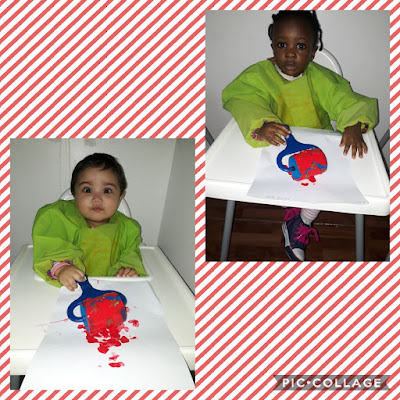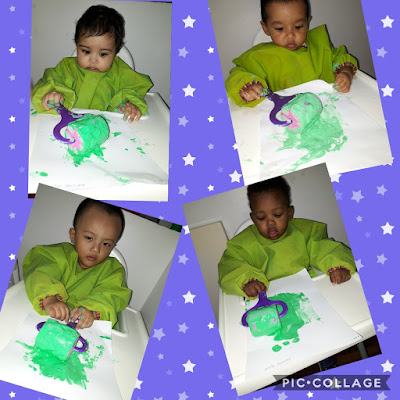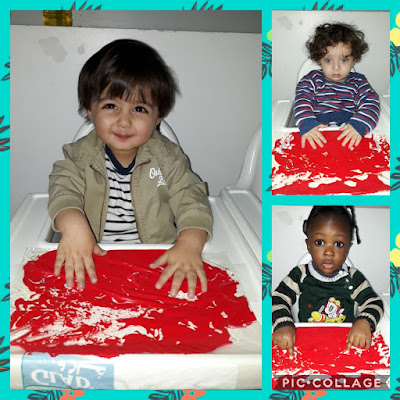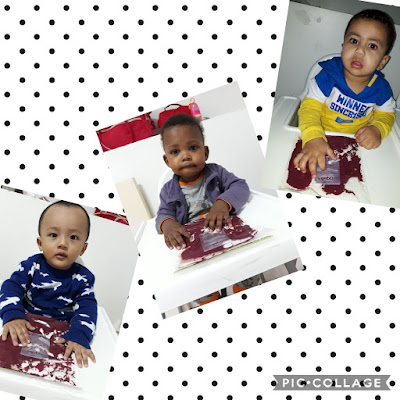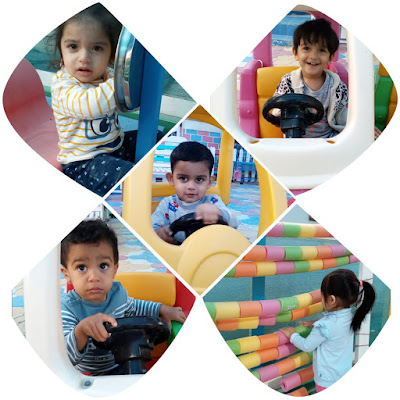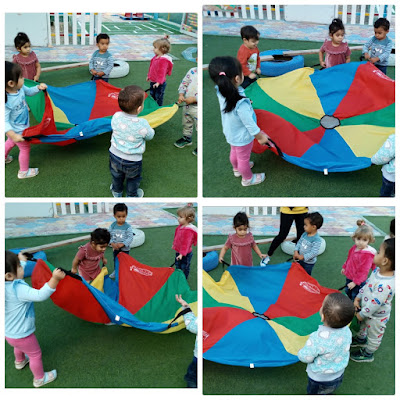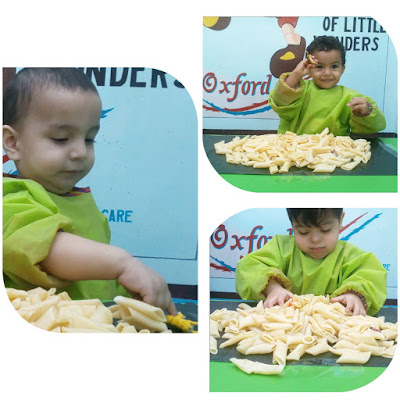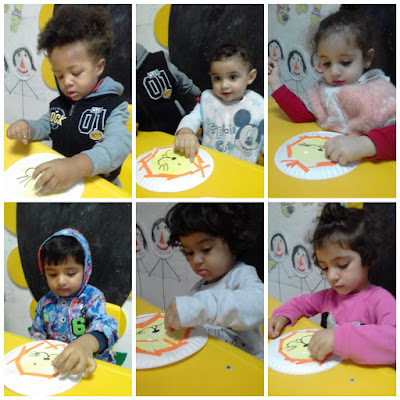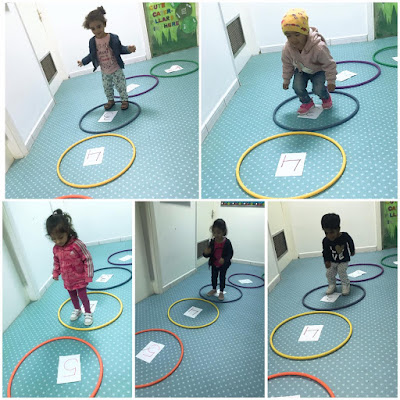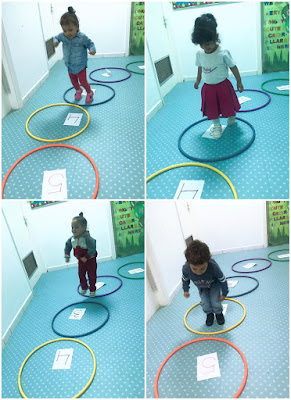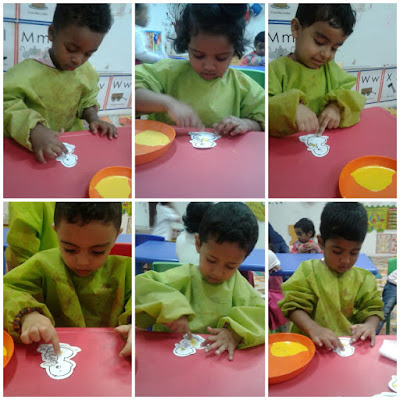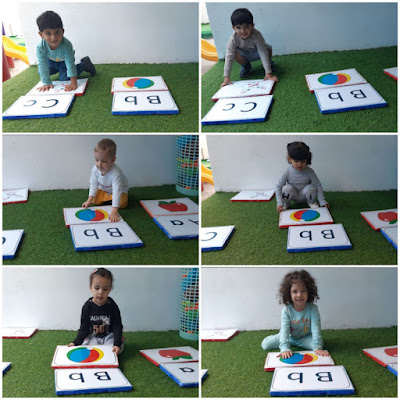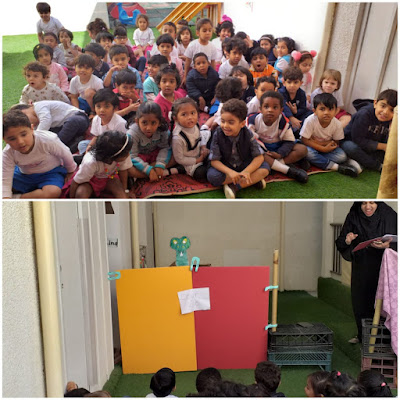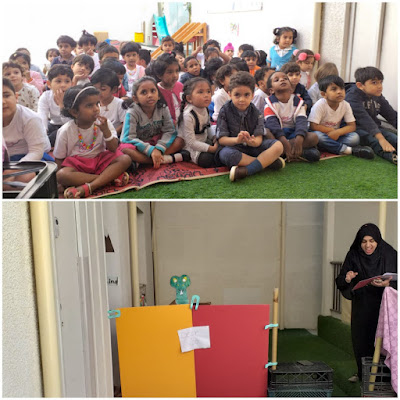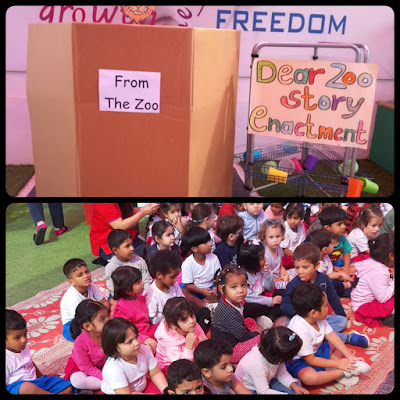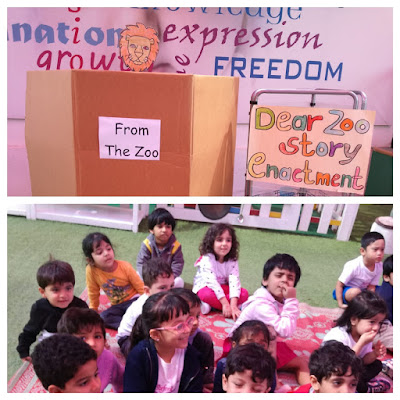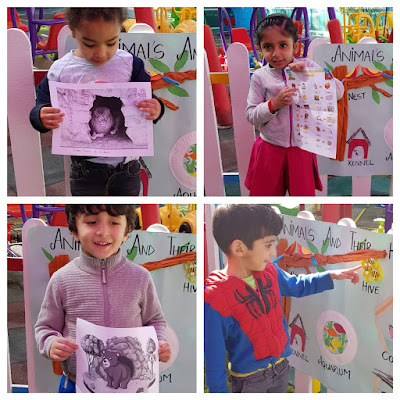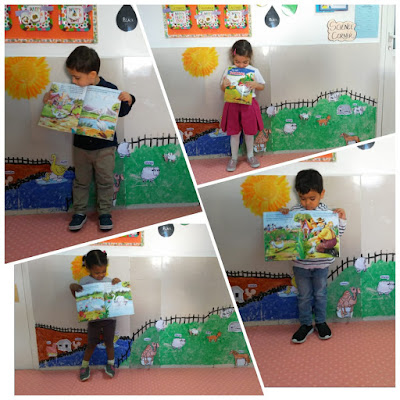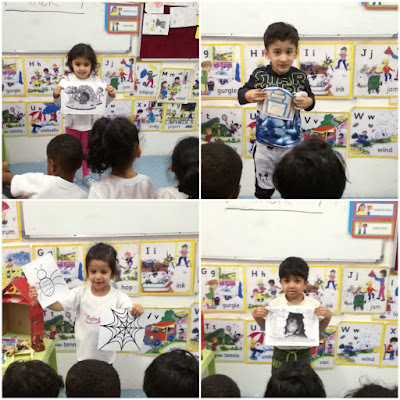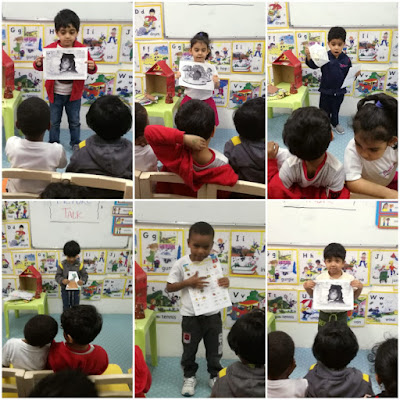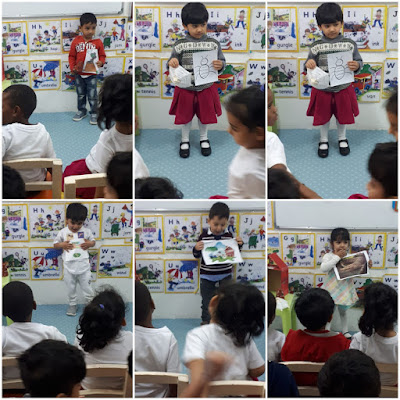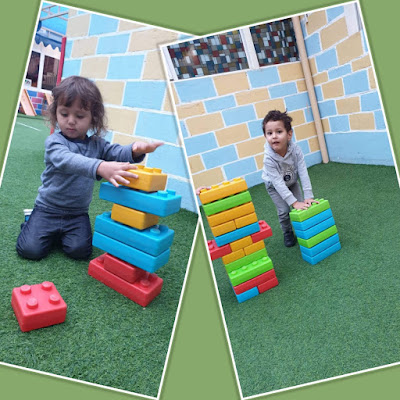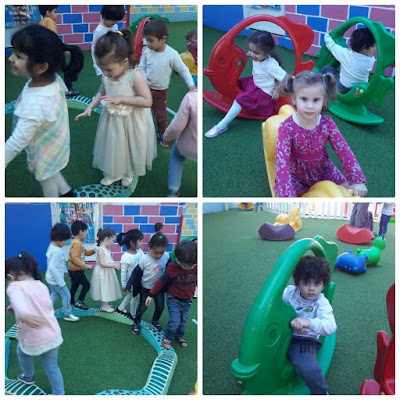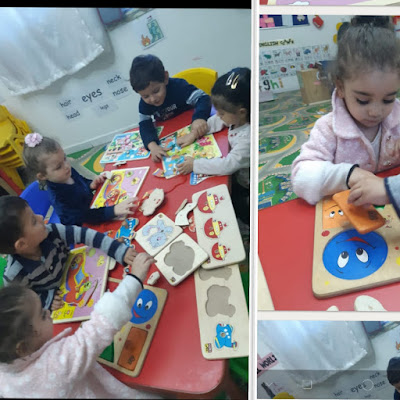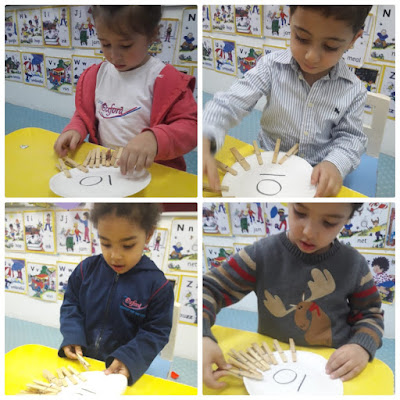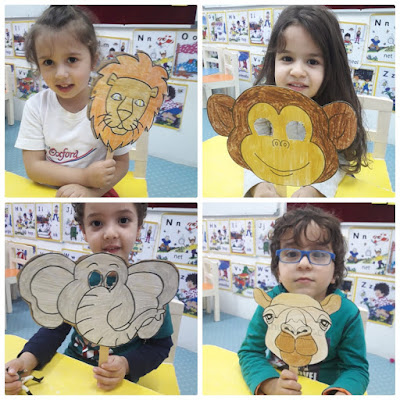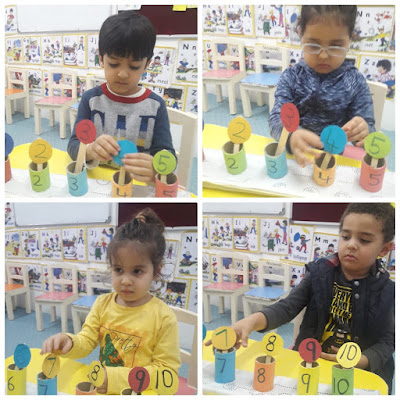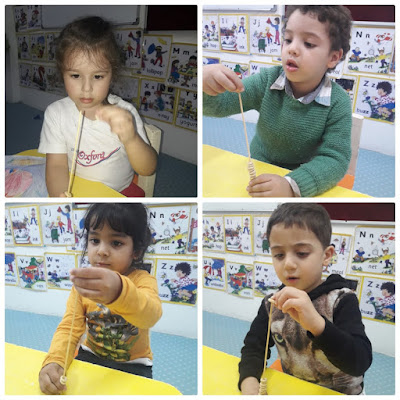SONG OF THE YEAR
UAE National Song
https://www.youtube.com/watch?v=o7KpDBYYB4Q
SONGS OF THE WEEK
ARABIC SONG
UmmiRabbatul Baitin
https://www.youtube.com/watch?v=z1pf06632DI
To listen to the song of the week for our Babies, kindly click on the link below:
Head, Shoulders, Knees and Toes
https://www.youtube.com/watch?v=h4eueDYPTIg
To listen to the song of the week for our Playgroup I, kindly click on the link below:
Dance with the Elephants
https://www.youtube.com/watch?v=MLnfCNeDZEw
To listen to the song of the week for our Playgroup II, kindly click on the link below:
Let's Go to the Zoo
https://www.youtube.com/watch?v=OwRmivbNgQk
To listen to the song of the week for our Foundation Year, kindly click on the link below:
Walking through the Jungle
https://www.youtube.com/watch?v=plvY0quSyJg
OUR STAFF PICNIC
Al Mamzar Park - Dubai
OUR BABIES
Talking with
babies and children from birth is important because it builds children’s
language and communication skills. These are important skills for life. Talking
with children doesn’t have to be a big deal – just chatting about everyday
things is a great start.Talking with babies or toddlers can help his language and communication development. The more we talk with babies or toddlers, the better. And it’s not just about better language skills. Talking with babies helps their brains develop and can help children do better at school when they’re older.
OUR PLAYGROUP I
Language development includes
learning to use words and sentences. At around 12 months, your
child will start using words to communicate with you. His babble will start
turning into real words. Your child might also enjoy saying the same word over
and over. Your child will begin to put two
words together as she nears two years – for example, ‘mummy car’, ‘me
go’ or ‘sock foot’. Words like ‘the’ and ‘is’ will be missing in these two-word
sentences. She’ll use only a few descriptive words at this age – for example,
‘big’, ‘red’ or ‘sunny’. Her word combinations will consist mainly of nouns and
some verbs (‘dog eat’, ‘car go’).
OUR PLAYGROUP II
Language development includes
your child understanding more and more of what’s said to her and how it’s said.
Your child will understand
one-step and two-step instructions, as long as they’re about things he already
knows – for example, ‘Pick up your toys and put them in the
box’ or ‘Come over here and have some apple’. He might
still find it hard to follow instructions about unfamiliar objects or tasks. Your child will begin to answer
questions from adults about ‘who’, ‘what’ and ‘where’, but she might not yet
understand how to answer ‘why’ and ‘how’ questions. Your child can tell from the tone
of your voice if you’re happy, affectionate or angry. If your child is struggling to do
something, he knows how to ask for your help. And your child will understand
household routines and guess what’s going to happen next in a routine. For
example, if you tell her to put her boots on, she knows she’s going to the
park.
OUR FOUNDATION YEARS
When your child doesn’t
understand what you say, she might ask you to explain or ask you what specific
words mean.
Your child will understand
instructions that have more than two steps, as long as they’re about familiar
things – for example, ‘Turn off the TV, put on your pyjamas and get into
bed’ or ‘When I open the gate, take my hand, then we’ll walk down to the
corner’. Also, your child will understand
questions most of the time, especially if they’re about something that’s
happening right now, or that he can see. He’ll understand slightly
complicated explanations, as long as he can see the results himself. For
example, he’ll understand an explanation like ‘When the sun shines on things,
it makes them hot. Feel how warm the water in the dog’s bowl is from being in
the sun’. By four, your child might be able
to understand and use words to express emotions like ‘happy’, ‘sad’, ‘mad’ or
‘surprised’.
AFTERNOON KIDS CLUB













